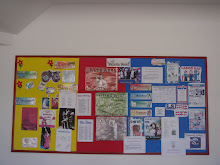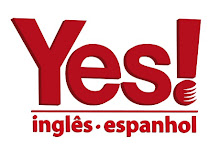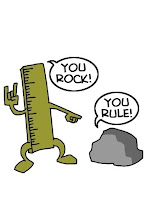1. TO USE X TO WEAR
To use = to do something with an object in order to do a job or solve a problem. (used, used)
She used all the shampoo to wash her hair.
I always use a dictionary to look up the meaning of words.
I use fresh vegetables to make salad.
He used his father’s influence to get the job.
To wear = to have something on your body (wore, worn)
In Brasilia, we wear summer clothes all year round.
Mary wears too much perfume.
I don’t like to wear things around my neck.
I only wear make up at night.
My son has worn glasses/braces since he was 5.
2. SENTENCES WITHOUT A SUBJECT
all sentences in English MUST have a subject.
It is rainy today.
It is important to circulate the news.
It will take me 10 minutes to convince her.
3. TO HAVE X THERE IS/THERE ARE
To have = If you have something, it belongs to you, it is yours, indicates possession.
I have a pretty house by the lake.
She has two younger brothers.
They have a profitable business.
He doesn’t have a very good reputation.
There is/there are = You use there is/are when you want to say that something exists.
There are 30 teachers at YES.
There is a new couch in my living room.
There are many people in my family.
There are some problems with his project.
To use = to do something with an object in order to do a job or solve a problem. (used, used)
She used all the shampoo to wash her hair.
I always use a dictionary to look up the meaning of words.
I use fresh vegetables to make salad.
He used his father’s influence to get the job.
To wear = to have something on your body (wore, worn)
In Brasilia, we wear summer clothes all year round.
Mary wears too much perfume.
I don’t like to wear things around my neck.
I only wear make up at night.
My son has worn glasses/braces since he was 5.
2. SENTENCES WITHOUT A SUBJECT
all sentences in English MUST have a subject.
It is rainy today.
It is important to circulate the news.
It will take me 10 minutes to convince her.
3. TO HAVE X THERE IS/THERE ARE
To have = If you have something, it belongs to you, it is yours, indicates possession.
I have a pretty house by the lake.
She has two younger brothers.
They have a profitable business.
He doesn’t have a very good reputation.
There is/there are = You use there is/are when you want to say that something exists.
There are 30 teachers at YES.
There is a new couch in my living room.
There are many people in my family.
There are some problems with his project.
4. TOO = NEGATIVE IDEA
Too = use too when you want to indicate that an amount of something is more than desirable, necessary, acceptable or that it is so great that it is impossible for a particular thing to happen.
TOO _____ + TO DO SOMETHING OR TOO _____ + FOR SOMEONE
It was too chilly to go to the club last weekend. (I did not go)
He is too rude to be a receptionist. (He cannot work as a receptionist)
The car is great but it is too expensive for me. (I cannot buy it)
I did not stay at the party for a long time. There were too many people there.
She cannot wear these shoes. They are too small for her.
5. LACK OF OBJECT
There are transitive and intransitive verbs in English.
The intransitive verbs do not need an object. E.g.: Airton Senna died.
The transitive verbs, on the other hand, NEED an object. E.g.: I bought something. I saw someone/something.
When we answer questions we also have to include the object:
Did you do the homework? Yes, I did it (the homework). No, I didn’t do it.
Have you seen Mary and Paul? Yes, I saw them last night. No, I have not seen them (Mary and Paul).
6. I HAVE A QUESTION X I AM IN DOUBT x I HAVE (MY/SERIOUS) DOUBTS.
“Teacher, I was doing my homework and I did not understand something. “ I HAVE A QUESTION.
“I have to decide if I study English or French.” I AM IN DOUBT.
“Everybody is saying he is innocent.” I HAVE SERIOUS/MY DOUBTS.
7. TO MISS X TO LOSE
To miss = it is gone, it will not come back.
To lose = if you lose something you don’t know where it is but you can find it/get it back.
I missed the plane. (I was late. The plane is gone, no chance of taking it).
I missed the homework correction. (You arrived too late to correct it)
I lost my watch at the club. (I don’t know where my watch is but I can find it).
I am not a very organized person. I often lose things. (I cannot find my stuff).
Too = use too when you want to indicate that an amount of something is more than desirable, necessary, acceptable or that it is so great that it is impossible for a particular thing to happen.
TOO _____ + TO DO SOMETHING OR TOO _____ + FOR SOMEONE
It was too chilly to go to the club last weekend. (I did not go)
He is too rude to be a receptionist. (He cannot work as a receptionist)
The car is great but it is too expensive for me. (I cannot buy it)
I did not stay at the party for a long time. There were too many people there.
She cannot wear these shoes. They are too small for her.
5. LACK OF OBJECT
There are transitive and intransitive verbs in English.
The intransitive verbs do not need an object. E.g.: Airton Senna died.
The transitive verbs, on the other hand, NEED an object. E.g.: I bought something. I saw someone/something.
When we answer questions we also have to include the object:
Did you do the homework? Yes, I did it (the homework). No, I didn’t do it.
Have you seen Mary and Paul? Yes, I saw them last night. No, I have not seen them (Mary and Paul).
6. I HAVE A QUESTION X I AM IN DOUBT x I HAVE (MY/SERIOUS) DOUBTS.
“Teacher, I was doing my homework and I did not understand something. “ I HAVE A QUESTION.
“I have to decide if I study English or French.” I AM IN DOUBT.
“Everybody is saying he is innocent.” I HAVE SERIOUS/MY DOUBTS.
7. TO MISS X TO LOSE
To miss = it is gone, it will not come back.
To lose = if you lose something you don’t know where it is but you can find it/get it back.
I missed the plane. (I was late. The plane is gone, no chance of taking it).
I missed the homework correction. (You arrived too late to correct it)
I lost my watch at the club. (I don’t know where my watch is but I can find it).
I am not a very organized person. I often lose things. (I cannot find my stuff).
8. MUCH
Much is used in negative sentences. In affirmative sentences it is only used together with VERY OR TOO for emphasis.
“I don’t have much money.” x “ I have a lot of money.”
“I like Brasília very much.” “I ate too much last night.”
Make a real sentence: free time during the week, free time on Sundays, money in the bank, time to study, drink water, drink wine, like to go to the movies, like sushi, eat sushi, like to travel, space in my living room, like my friends.
9. SANDWICH X HAMBURGER/BURGER
These words have different meanings in English.
Sandwich = two slices of bread with meat, cheese, ham, jam between them, you eat a sandwich at Marieta.
“ I like chicken sandwiches.” “I’d like a tuna sandwich.”
Hamburger = a flat disc of minced meat, you eat a hamburger/burger at Bob’s/McDonald’s/Marvin.
“In my opinion, Marvin’s burgers are the best in town.”
10. ANOTHER X THE OTHER X THE OTHERS
a. Another = one more, one extra. Used with singular nouns.
I already have two pairs of black shoes but I am going to buy another one. (one more)
I have eaten a lot but I want another piece (one more) of this delicious cake.
b. Other = the second of two. Used in the singular.
I have two sisters. One (the first) lives in New York and the other lives (the second) in Canada.
I bought two tickets. One (the first) for my husband and the other (the second) for me.
c. Other = the rest. Used in the singular with plural nouns.
I saw the pink and the blue dresses. Where are the other dresses?
I will talk to Groups “A“and “B”. Can you talk to the other groups?
d. Others = the rest. Used with “s” when you omit the noun.
I saw the pink and the blue dresses. Where are the others?
I will talk to Groups “A“and “B”. Can you talk to the others?
Ob: Other is NOT used to substitute DIFFERENT.
I would prefer a completely different color. (not a completely other color).
11. TO TALK ABOUT x TO DISCUSS
To talk about = to have a conversation. You talk to someone about something.
“I talked to the doctor about my kids.”
To discuss = to talk about something in detail. You discuss something with someone.
“ I will discuss an important matter with my boss.”
To argue = to speak angrily with someone about something you disagree, you argue with someone about something.
“ The workers argued with the boss about the extra hours they had to work.”
12. THANK GOD!! x THANKS TO SOMEONE
Thank (You) God! = an expression to show relief. No “S” at the end of THANK.
“Thank (You) God it is not raining today!”
Thanks to someone = that person is responsible for what happened.
“Thanks to my father, I started to study English when I was very young.”
13. IT IS ABSURD! (It is an adjective, not a noun like in Portuguese, so no article).
Much is used in negative sentences. In affirmative sentences it is only used together with VERY OR TOO for emphasis.
“I don’t have much money.” x “ I have a lot of money.”
“I like Brasília very much.” “I ate too much last night.”
Make a real sentence: free time during the week, free time on Sundays, money in the bank, time to study, drink water, drink wine, like to go to the movies, like sushi, eat sushi, like to travel, space in my living room, like my friends.
9. SANDWICH X HAMBURGER/BURGER
These words have different meanings in English.
Sandwich = two slices of bread with meat, cheese, ham, jam between them, you eat a sandwich at Marieta.
“ I like chicken sandwiches.” “I’d like a tuna sandwich.”
Hamburger = a flat disc of minced meat, you eat a hamburger/burger at Bob’s/McDonald’s/Marvin.
“In my opinion, Marvin’s burgers are the best in town.”
10. ANOTHER X THE OTHER X THE OTHERS
a. Another = one more, one extra. Used with singular nouns.
I already have two pairs of black shoes but I am going to buy another one. (one more)
I have eaten a lot but I want another piece (one more) of this delicious cake.
b. Other = the second of two. Used in the singular.
I have two sisters. One (the first) lives in New York and the other lives (the second) in Canada.
I bought two tickets. One (the first) for my husband and the other (the second) for me.
c. Other = the rest. Used in the singular with plural nouns.
I saw the pink and the blue dresses. Where are the other dresses?
I will talk to Groups “A“and “B”. Can you talk to the other groups?
d. Others = the rest. Used with “s” when you omit the noun.
I saw the pink and the blue dresses. Where are the others?
I will talk to Groups “A“and “B”. Can you talk to the others?
Ob: Other is NOT used to substitute DIFFERENT.
I would prefer a completely different color. (not a completely other color).
11. TO TALK ABOUT x TO DISCUSS
To talk about = to have a conversation. You talk to someone about something.
“I talked to the doctor about my kids.”
To discuss = to talk about something in detail. You discuss something with someone.
“ I will discuss an important matter with my boss.”
To argue = to speak angrily with someone about something you disagree, you argue with someone about something.
“ The workers argued with the boss about the extra hours they had to work.”
12. THANK GOD!! x THANKS TO SOMEONE
Thank (You) God! = an expression to show relief. No “S” at the end of THANK.
“Thank (You) God it is not raining today!”
Thanks to someone = that person is responsible for what happened.
“Thanks to my father, I started to study English when I was very young.”
13. IT IS ABSURD! (It is an adjective, not a noun like in Portuguese, so no article).
























































Sem comentários:
Enviar um comentário